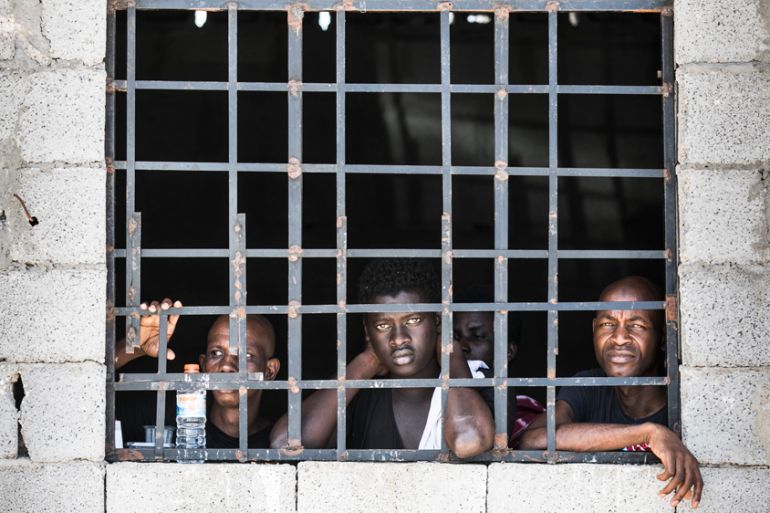‘Slavery is an outrageous reality in Libya’
UN experts call on Libyan government to take urgent action to end the country’s slave trade.

A group of UN human rights experts has strongly condemned Libya’s slave trade amid reports that hundreds of African refugees are being bought and sold in markets across the country every week.
In a joint statement issued on Thursday, the group urged the Libyan government to take “urgent action” to end the practice.
Keep reading
list of 4 items‘More mainstream’: In the UK, push for slavery reparations gains momentum
Paradise prison: How 107 Bangladeshis became enslaved on a Pacific island
A tale of two cities: Diaspora influx hikes cost of living for Ghanaians
“We were extremely disturbed to see the images which show migrants being auctioned as merchandise, and the evidence of markets in enslaved Africans which has since been gathered,” the statement noted.
“It is now clear that slavery is an outrageous reality in Libya. The auctions are reminiscent of one of the darkest chapters in human history, when millions of Africans were uprooted, enslaved, trafficked and auctioned to the highest bidder.”
Among the signatories to the statement were Urmila Bhoola, the United Nations special rapporteur on contemporary forms of slavery; Felipe Gonzalez-Morales, the special rapporteur on the human rights of migrants; Maria Grazia Giammarinaro, the special rapporteur on trafficking in persons; and others with expertise on human rights and minority issues.
They are part of the Special Procedures of the Human Rights Council, the largest body of independent experts in the UN human rights system.
The statement called on the Libyan government and the international community to “take immediate and decisive action to ensure that this crime does not continue”, calling for the immediate release of those already enslaved.
“It is imperative that the authorities urgently locate and rescue the victims of this horrendous crime and that Libya holds the perpetrators accountable,” the statement noted, adding that migrants in Libya “are at high risk of multiple grave violations of their human rights, such as slavery, forced labour, trafficking, arbitrary and indefinite detention, exploitation and extortion, rape, torture and even being killed”.
An estimated 700,000 migrants are in Libya, which is among the key transit pathways towards Europe, according to a UN estimate.
A human trafficker recently told Al Jazeera that many of the enslaved refugees are held for ransom or forced into prostitution and sexual exploitation to pay their captors and smugglers. Others are murdered by smugglers or die in the desert from thirst or car accidents.
Libya’s ambassador to the UN has said that the reports of slave auctions will be fully investigated.